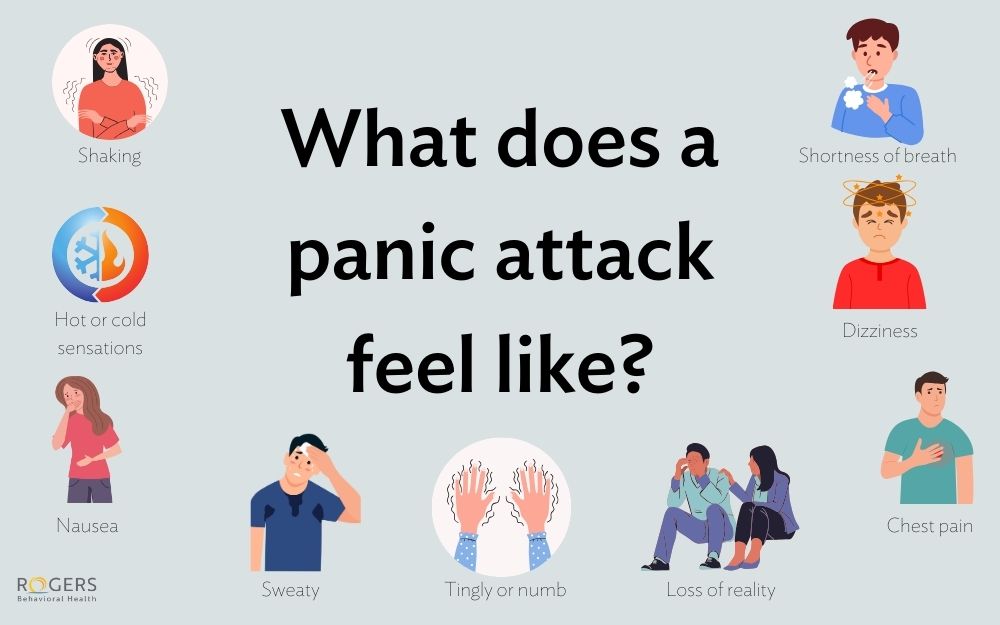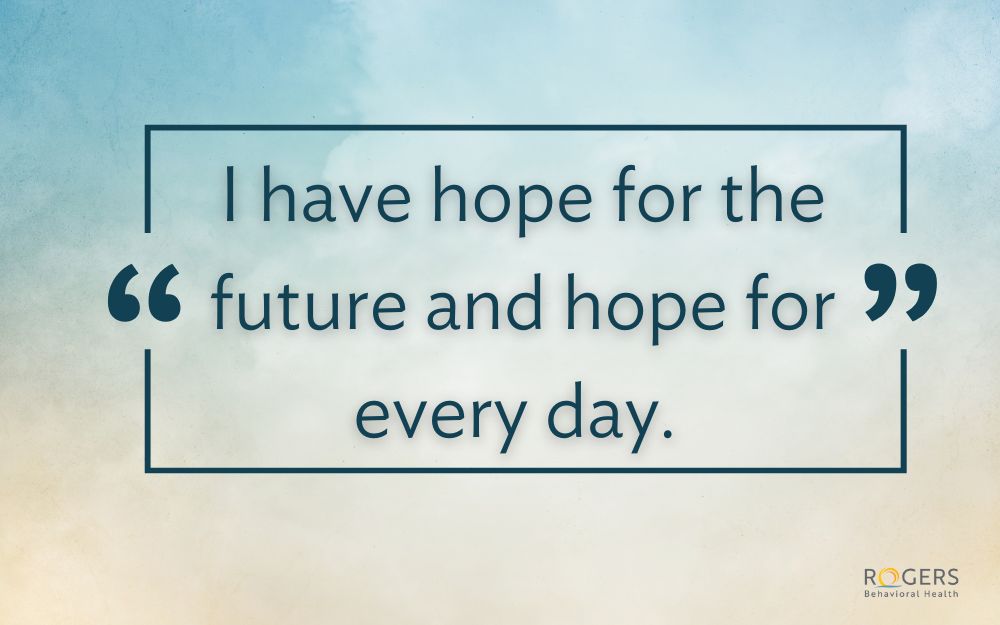Four ways "Every Brilliant Thing" is jumpstarting important mental health discussions
Posted on 04/25/19 01:24:pm
Share this article:
In the video above, Sue McKenzie, vice president, Healthy Culture and Rogers InHealth, led a discussion about "Every Brilliant Thing" with the play's director and actor. Sue was one of the community responders who spoke after each performance of “Every Brilliant Thing". Rogers Behavioral Health was the corporate sponsor for the play which runs through May 5 at the Milwaukee Repertory Theater. See Sue's blog below.
Every Brilliant Thing holds important lessons
Sometimes theater holds up a mirror to real life and has the potential to start important conversations. That’s exactly what’s happening at the Milwaukee Repertory Theater with the play “Every Brilliant Thing”.
With just one actor who engages audience members to help tell his story, the play portrays the most extreme human emotions from sadness and anger to the purest joy. The plot centers around a child who grows up with a mother who endures depression and a father who struggles to handle their circumstances. The child’s response to his family’s challenges is to keep a list of all the things that make him happy—all the reasons life is worth living.
#1: Fighting stigma by seeing each other
The play “Every Brilliant Thing” is a great example of how to overcome the stigma related to mental illness and addiction. When we get to know a person, spend time with them, get curious about what they feel and hope for, the labels that we initially use to define each other begin to fade away. When we find common humanity with people who seem so different than us, we fear less and open our hearts to understand more.
#2: Building hope and resilience through gratitude
Did you know that practicing gratitude is shown to improve mental health? “Every Brilliant Thing” reminds us of the common joy in life’s little pleasures. Starting at a young age, the child is attempting to ease his mother’s depression with his list of a million brilliant things from ice cream and pillow fights to Star Trek and rollercoasters. The list is funny and sweet and offers hope through some pretty dark times.
#3: Knowing when to ask for help
But sometimes, just as we observe in the play, celebrating all of life’s good points is simply not enough to ward off the effects of depression or other mental health disorders. For those who’ve tried and tired of the “go it alone” mentality, it was encouraging to see the main character willing to pick up the phone and ask for help. He called a former school counselor, who was there to offer compassion and guide him back to a better place.
#4: Being there for others
Mrs. Patterson, that same school counselor who was helpful when the little boy was dealing with the effects of his mother’s severe depression, was again available when the phone call came years later. She provides a role model for how we should respond when someone seeks our help. For one, she recognizes the courage it took to come forward. Second, she listens and responds without judgment. And, she responds in a calm and reassuring manner. These are the first three of seven promises that people can make when they pledge to be a Safe Person for others to approach with mental health concerns. Learn more at wisewisconsin.org/safeperson/.



